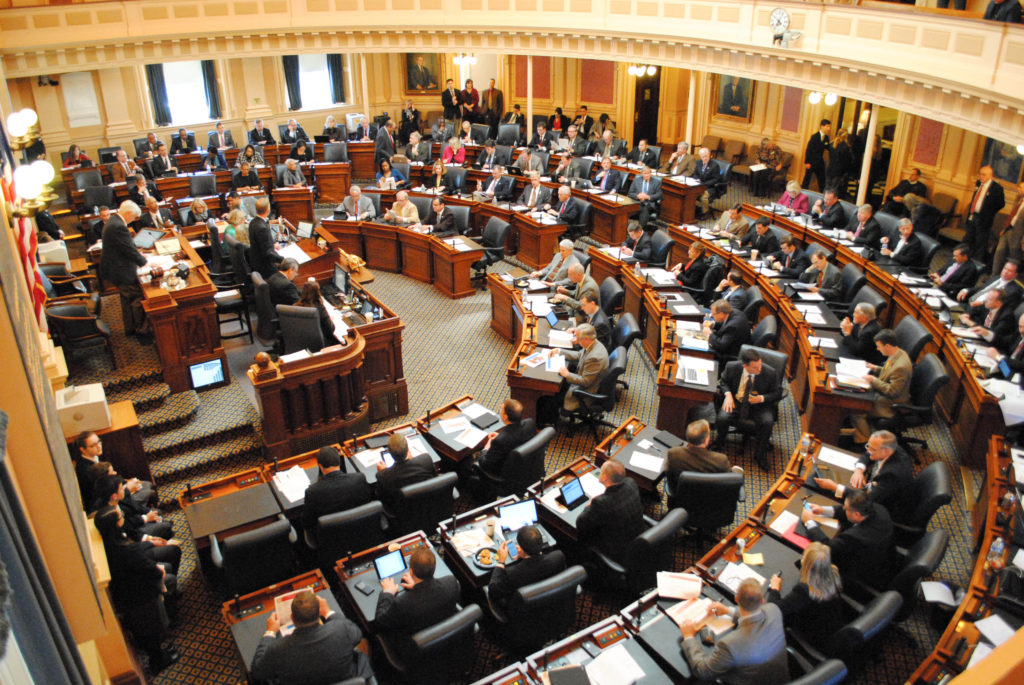A second attempt to force the Virginia House of Delegates to face an unscheduled election this year was struck down after a federal appeals court upheld a ruling by a lower court that dismissed the lawsuit.
As previously reported, two lawsuits have been attempted in order to force the Republican-controlled House of Delegates to hold an off-cycle election. One filed by Democratic Party activist Paul Goldman, claims that House members elected for two-year terms in November 2021 must run again in 2022 under newly redrawn maps that properly align legislative districts with population shifts.
Originally, this lawsuit was struck down when a three-judge U.S. District Court panel ruled that Goldman didn’t have legal standing to sue as a voter or a potential candidate. Now, the appeal to that case has put the lawsuit to rest, with a three-judge panel of the 4th U.S. Circuit Court of Appeals agreeing with the original ruling on Thursday.
While the first lawsuit appears to be dead in the water, the second lawsuit is still moving forward, despite Miyare’s office attempt to dismiss the lawsuit.
“This is a case about delay,” the OAG states in a July 1 memorandum supporting a motion to dismiss. “Almost a year after the first lawsuit challenging the constitutionality of the 2021 House of Delegates election, seven months after that election took place, and just over four months before the 2022 general election, Plaintiffs filed a lawsuit challenging the 2021 election.”
The second lawsuit, filed by author Jeff Thomas, is attempting a similar lawsuit, arguing the 2021 Virginia House elections were held under outdated districts and that their votes were diluted as a result. The attorney general’s office — under both Democrat Mark Herring and his Republican successor Jason Miyares — has defended Virginia’s elections commissioner and the state board of elections in the cases.
Miyares’s office argues the plaintiffs lack standing to bring the case forward because they did not challenge a new map that would be used in an upcoming election that shows “an ongoing or future injury in fact,” but instead claiming the map used last year was unconstitutional.
In both redistricting cases, state lawyers have said that the 2021 Virginia House elections were constitutional because the state was required to use the “best population data available” and new census data arrived too late to redraw the districts.
“Virginia received the 2020 Census data a mere 23 days before the 2021 general election began and 79 days after the primary election had concluded,” Miyares’s office wrote in the July 15 filing. “The ‘best population data available’ were therefore the 2010 Census data because the 2020 Census data were not available in time for the 2021 election.”
The attorney general’s office also disputes the assertions that it’s responsible for a delay in the legal effort, arguing in its motion to dismiss and response to the plaintiffs that Thomas did not have to try to intervene in Goldman’s case and could have filed his own lawsuit at any time.
If the lawsuit survives, the case is expected to be heard on an expedited schedule. The amended lawsuit from Thomas calls for primary elections to be held on or before Sept. 13, 2022, and to hold the state House elections on Nov. 8, 2022, when the congressional midterms will be held, and also cause Virginia to have House of Delegates elections three years in a row.
Given how the Goldman lawsuit was ruled moot, and how Miyares and his office have clarified multiple times that the election that was held was done so with a perfectly legal system in place, the lawsuit seems it will meet a similar fate as the previous attempt.

